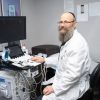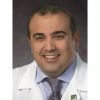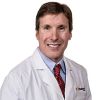How to Reduce Your Risk of Heart Disease with Early Detection
As someone who has always been mindful of my health, I realized just how critical early detection is when it comes to reducing the risk of heart disease. Over the years, I've watched friends and family members struggle with cardiovascular health issues, some of which could have been prevented or mitigated with earlier intervention. Heart disease is the leading cause of death in the United States, but the good news is that we can take steps to reduce our risks through early detection, lifestyle changes, and regular health check-ups. Let me share with you how I’ve learned to recognize the importance of early detection in preventing heart disease and how it can help save lives.

1. Understanding the Risk Factors for Heart Disease
Before diving into how early detection can help, it's important to first understand the key risk factors for heart disease. I’ll never forget when my doctor first explained these factors to me in detail, which helped me realize that heart disease doesn't happen overnight. It’s usually the result of a combination of lifestyle habits, genetic factors, and environmental influences. Some of the major risk factors include:
- High blood pressure: Often referred to as the “silent killer,” high blood pressure can lead to heart disease if not managed properly.
- High cholesterol: Elevated cholesterol levels can cause plaque buildup in your arteries, leading to atherosclerosis.
- Diabetes: Having diabetes significantly increases your risk of developing heart disease.
- Smoking: Smoking damages blood vessels and can lead to coronary artery disease.
- Family history: If heart disease runs in your family, you may be at an increased risk, even if you live a healthy lifestyle.
- Lack of physical activity: A sedentary lifestyle can contribute to obesity, high blood pressure, and high cholesterol.
By understanding these risk factors, I began to realize how important it is to stay on top of them through regular check-ups and screenings. The earlier we detect issues, the more control we have over the outcomes.
Atlanta Heart Specialists
atlanta heart specialists
4375 Johns Creek Pkwy #350, Suwanee, GA 30024, USA

2. The Role of Early Detection in Preventing Heart Disease
Early detection is one of the most powerful tools in preventing heart disease. I was personally reminded of this after a routine screening revealed a slightly elevated cholesterol level, something I had never considered before. Although my cholesterol wasn’t dangerously high at that point, it was an early warning sign that led me to make positive changes in my diet and exercise routine. It was a wake-up call that I might have ignored if I hadn’t undergone that screening.
Through early detection, healthcare providers can identify risk factors before they develop into something more serious. For example, a blood test can measure cholesterol levels and blood sugar levels, both of which can indicate your risk of heart disease. Additionally, blood pressure screenings can reveal hypertension, which is often the precursor to cardiovascular problems.
3. Key Health Screenings to Watch For
If you’re looking to reduce your risk of heart disease, here are some essential health screenings I recommend that can help detect potential problems early:
- Blood Pressure Check: High blood pressure can damage your arteries and lead to heart disease. It’s a simple test that can be done at almost any doctor’s office.
- Cholesterol Screening: A lipid profile measures your cholesterol levels, including LDL (bad cholesterol) and HDL (good cholesterol). Keeping these in check is crucial to heart health.
- Blood Sugar Test: A fasting blood glucose test can help detect prediabetes or diabetes, both of which increase your heart disease risk.
- Electrocardiogram (EKG/ECG): This test measures the electrical activity of your heart and can detect abnormal heart rhythms or signs of heart disease.
- Stress Test: During a stress test, you exercise on a treadmill while your heart rate and rhythm are monitored. It can help detect heart issues that might only show up during physical exertion.
By scheduling these screenings regularly, you give yourself the best chance to catch any early signs of heart disease before they become life-threatening. It’s a proactive approach that I strongly recommend.
4. Lifestyle Changes That Complement Early Detection
Early detection alone is not enough. Once you have the knowledge about your health, it’s time to take action. I’ve learned that the best way to complement early detection is through lifestyle changes. Even small adjustments can make a significant impact on your heart health. Here are some lifestyle changes that can help reduce your risk of heart disease:
- Adopt a Heart-Healthy Diet: A diet rich in fruits, vegetables, whole grains, lean proteins, and healthy fats (like those found in avocados and nuts) can improve your cholesterol and blood pressure.
- Stay Active: Regular exercise strengthens the heart and helps regulate blood pressure and cholesterol levels. I’ve found that even brisk walks or yoga sessions can make a huge difference.
- Quit Smoking: Smoking is a major risk factor for heart disease. Quitting smoking dramatically reduces your risk.
- Maintain a Healthy Weight: Being overweight or obese increases your risk of high blood pressure, high cholesterol, and diabetes—all of which contribute to heart disease.
- Manage Stress: Chronic stress can negatively impact heart health. I’ve discovered that techniques like mindfulness, meditation, and deep breathing exercises can reduce stress levels.
Implementing these lifestyle changes can greatly improve the health of your heart, especially when combined with regular screenings and early detection efforts.
5. Why Regular Check-ups Are Essential
Regular check-ups are the foundation of early detection. I make it a point to visit my doctor annually for a comprehensive physical exam. These check-ups not only provide an opportunity for screenings but also help me stay informed about my health status. By discussing any family history of heart disease with my doctor, I can take even more proactive steps in reducing my risk.
During a recent check-up, my doctor recommended I increase my fiber intake to help lower my cholesterol levels. This kind of personalized advice has been invaluable in guiding my lifestyle choices. Consistent visits to my healthcare provider ensure I’m on the right path and help me address any concerns before they escalate into serious conditions.
Heart disease is not something that happens overnight, and fortunately, there’s a lot we can do to reduce our risk. Early detection through screenings, lifestyle adjustments, and regular check-ups play a vital role in preventing heart disease. By staying proactive and vigilant about our health, we can significantly reduce our chances of heart problems down the road.
For more information on heart disease prevention and early detection, visit HeartCare Hub for expert advice and tips tailored to your needs.





















Deborah Heart and Lung Center
deborah heart and lung center
200 Trenton Rd, Browns Mills, NJ 08015, USA